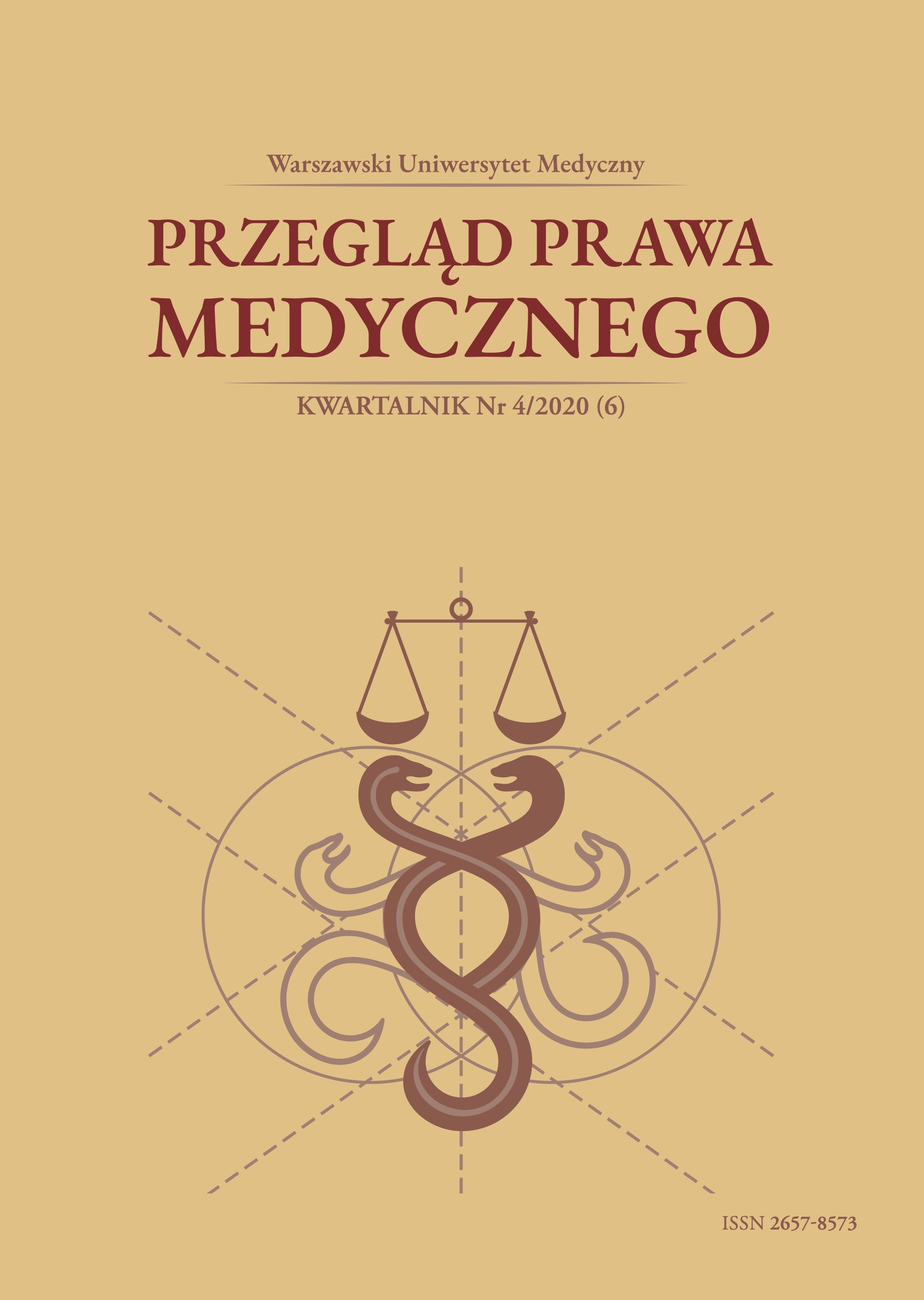Abstract
Gloss to the decision of the Supreme Court of 5/11/2015, V CSK 456/15
The Supreme Court in the commented judgment aptly pointed out that the conditions for admission to a psychiatric hospital in the application procedure (Article 29 of the Act on Mental Health Protection) as any reception without consent must be understood strictly, and thus can not be interpreted in a wide way. This means that the medical condition in the form of mental illness can not be extended to other psychiatric disorders, and the premise concerning the behavior of this person - inability to satisfy basic life needs - should be understood as a real life threatening situation in the long term, and there is a real opportunity to improve (not deteriorate) mental health as a result of admission. At the same time, compulsory admission should be treated as a last resort if it is not possible to prevent it through outpatient care or hospitalization with the consent of the patient. When adjudicating that placement without consent, the court should consider not only health considerations, but also the interests and other good of the patient. A person applying for such a decision by a court should submit a psychiatrist's position regarding the need for treatment in a psychiatric hospital. If this is not possible, it should make the necessity of psychiatric hospitalization and the reasons for not submitting the position of a psychiatrist in the justification of the application. Then the court should order a psychiatric examination of the person concerned.

This work is licensed under a Creative Commons Attribution 4.0 International License.
Copyright (c) 2021 Jan Ciechorski

